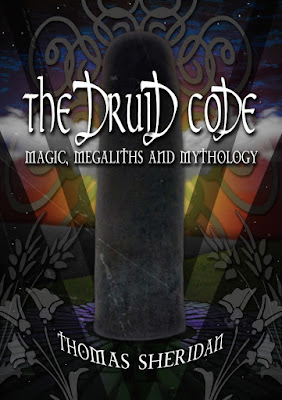Review: The Sacred History: How Angels, Mystics and Higher Intelligence Made Our World by Mark Booth (Jonathan Black).
In The Sacred History author Jonathan Black (AKA Mark Booth) sets out the case for idealism over materialism. Following on from his previous book The Secret History of the World the author this time uses an approach to mysticism that is possibly easier for the layperson to understand.
The reason for this is the focus upon myth and the explanation of various religious and spiritual traditions and texts as opposed to the possibly more studious scope of his previous work.
When we look back upon the history of sacred writings and wisdom supposedly gained through higher states of consciousness we must place a huge amount of faith in the notion of intuition and the idea that there is a common path applicable to us all.
Idealism, as Black sees it, is the belief that thought came before matter and all of existence is somehow the expression of this original mind.
In the book we are taken on a journey that begins with our earliest intimations of this higher aspect through creation myths from various cultures and spiritual traditions. Black looks for common links in terms of what lies beneath words and images and asks us to question what aspects within ourselves are provoked by these tales.
Indeed, what is emphasized is that we need to look beyond the cultural biases and ongoing interior development of all societies as, according to Black, we are always developing towards something that is bigger than ourselves yet something that connects us all.
This development means that the mindset of a culture from 4000 years ago is going to be completely different in what it is able to envision than the generations that come after it.
In order to demonstrate this expansion of consciousness the author guides us through the landscape of fable and myth much like Joseph Campbell and even Manly P. Hall at times.
As the book progresses we pass through famous and not so famous mythologies and archetypes which represented stages of expression and emanation, from the biblical tradition to contemporary mystics.
I sometimes found that I struggled to see connections between belief systems that were continents and traditions apart, but, again, who knows how societies, culture and rules might change an initially shared ideal?
Throughout the book the author asks us to see beyond what is written and also look to what may lie behind words in terms of symbol and feeling. The sense that inner trust is vital is a strong theme in all of Black's writing, I find.
From the philosophy of Hermeticism to the more modern writings of Jung and Steiner, we are shown how Idealism continues to inspire even in the face of a rapidly progressing scientific advancement. Although it is not the focus of the book, I find the parallels between quantum theory and Idealism very intriguing and although the author mentions scientists like Newton (Whose esoteric views are almost always overlooked by mainstream science) it would be interesting to compare the work of somebody like Itzhak Bentov, for example, to some of the ancient teachings we find in this work.
Black uses a nice example of the Hadron Collidor trying to find the secrets of the universe and the human mind being able to find those same secrets through contemplation to close the book. It reminded me of this quote:
"In Silence there is eloquence. Stop weaving and see how the pattern improves."
Rumi.
This is a fascinating and thoroughly researched work that containing a wealth of collected wisdom and ideas. Highly recommended.
Purchase Mark's Books Here.

.png)


Comments
Post a Comment